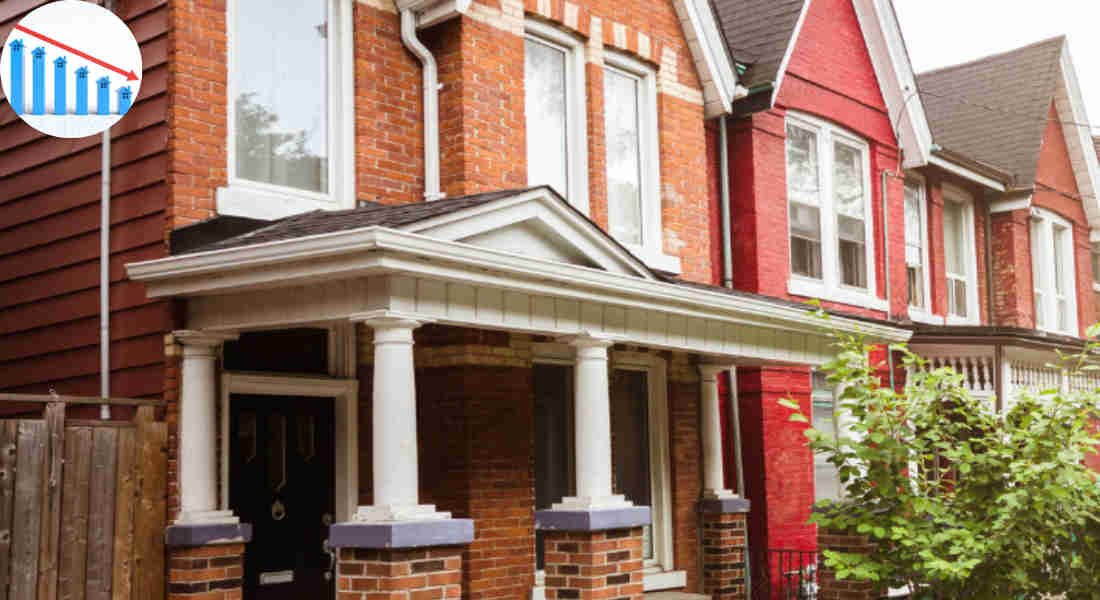A recession often sparks the question: does it really lower house prices? While economic downturns typically lead to reduced buyer demand and can create downward pressure on home prices, the relationship is complex and influenced by various factors. Historically, recessions have slowed housing markets and sometimes caused price declines, but significant crashes like in 2008 are exceptions rather than the norm. In many cases, recessions result in slower price appreciation or modest dips, especially in markets facing additional challenges such as high taxes or natural disasters. Moreover, a recession often leads to lower mortgage rates as central banks cut interest rates to stimulate the economy, which can increase affordability for buyers and create opportunities to purchase homes at better prices. However, tighter lending standards and economic uncertainty can also limit buyer activity. Ultimately, while a recession can soften the housing market and potentially lower prices, the extent and timing of such changes vary widely depending on the recession’s severity, local market conditions, and broader economic factors.
Understanding the relationship between recessions and house prices
Recessions often trigger significant shifts in the housing market. When economic growth slows, consumer confidence tends to wane. People become more cautious about making big financial commitments, such as purchasing a home.
This drop in demand can lead to lower house prices. Sellers may find themselves forced to cut prices just to attract buyers. Consequently, homes that were once considered valuable might sit on the market for extended periods.
However, not all recessions affect house values equally. The impact varies depending on location and other factors like interest rates or local job markets.
In some areas, especially those with strong economies or limited housing supply, prices may remain stable despite national trends. Understanding these nuances helps potential buyers and sellers navigate turbulent waters effectively during economic downturns.
Case studies of past recessions and their impact on house prices
The housing market has faced significant shifts during past recessions, often reflecting broader economic trends. For instance, the 2008 financial crisis led to a dramatic decline in home values across the United States. This downturn was fueled by subprime mortgage failures and resulted in millions losing their homes.
In contrast, the recession of 2001 had a more muted impact on house prices. Many markets remained relatively stable as interest rates were lowered to stimulate growth. This shows that not all recessions produce the same outcomes for real estate.
Looking back at previous downturns reveals patterns unique to each period. The early ’90s recession saw housing prices drop primarily due to job loss and economic contraction, but recovery followed with increased demand in urban areas as jobs returned.
These case studies highlight how external factors play crucial roles in determining whether a recession will lower house prices or allow them to remain resilient.
You may also read (does house insurance protect against wind damage to roof).
How a recession affects different types of housing markets (e.g. urban vs suburban)
Recessions impact housing markets in varied ways, particularly between urban and suburban areas.
Urban markets often experience more volatility. High-cost living combined with job losses can lead to increased vacancies and a decline in demand. People may leave cities for cheaper options, affecting prices significantly.
In contrast, suburban areas might see a different trend. Many families gravitate toward suburbs during economic downturns as they seek affordability and space. This shift can help stabilize or even increase property values in some suburban neighborhoods.
The demand for single-family homes tends to remain strong due to the emphasis on remote work and lifestyle changes brought about by recessions.
Investors will also react differently based on location. Urban properties might attract lower interest while suburbs offer opportunities for long-term growth.
Understanding these dynamics is crucial whether you’re buying or selling a home during tough economic times.
Factors that influence house prices during a recession
During a recession, several factors come into play that can influence house prices. The overall economic climate is an important factor. Job losses and reduced income lead to decreased demand for homes.
Interest rates also play a crucial role. When central banks lower rates to stimulate the economy, mortgage costs may drop, making homes more affordable for some buyers. However, potential homeowners might still hesitate due to job uncertainties.
Supply and demand dynamics shift as well. Some sellers may withdraw from the market, fearing they won’t get their asking price. This reduction in supply can help stabilize home values amidst declining buyer interest.
Investors often take advantage of lower prices during downturns, adding another layer of complexity to housing markets. Their presence can create competition even when general sentiment is bearish.
Government policies aimed at supporting struggling homeowners or stimulating construction projects can impact local markets differently depending on implementation and timing.
You may also read (does kennesaw state have sorority houses available).
Tips for buying or selling a home during a recession
Navigating the housing market during a recession can be challenging, but it also presents unique opportunities. For buyers, it’s crucial to do your homework. Research neighborhoods and focus on homes that have potential for appreciation once the economy rebounds. When making an offer, consider getting pre-approved for a mortgage.
If you’re selling, pricing is key. While you may want to hold out for top dollar, being realistic about your home’s value in a down market can attract serious buyers. Invest in small improvements or staging that enhance appeal without breaking the bank.
Timing can also play a significant role in decision-making during these times. Be patient if possible; waiting might yield better offers as conditions improve.
Staying informed about local market trends will help you make sound decisions whether you’re buying or selling a home during uncertain economic times like recessions. Adapting strategies based on current data can set you up for success regardless of what the broader economy looks like.
You may also read (does an eviction affect your home buying options).

